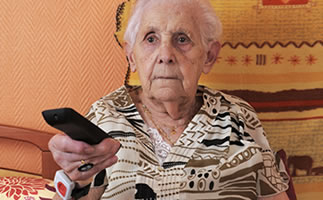The ACUte effects of SITting time on physiological and psychological function in older adults (ACUSIT)
To determine the acute functional and cognitive effects of differing periods of sitting time.
 The current UK physical activity guidelines state that older people should not only be more active but that they should also be less inactive: “All older adults should minimise the amount of time spent being sedentary (sitting) for extended periods”.
The current UK physical activity guidelines state that older people should not only be more active but that they should also be less inactive: “All older adults should minimise the amount of time spent being sedentary (sitting) for extended periods”.
However there is insufficient information about the acute effects of sedentariness in terms of (i) physiological (musculoskeletal) function (ii) psychological (cognitive) function (iii) psychophysiological stress (iv) older adults views about sedentariness. These knowledge gaps hamper progress in extending the current behavioural change framework to the development of interventions to reduce sedentary behaviour.
Our aim is to address these knowledge gaps, focusing on men and women aged 70 years and older and their responses to different periods of sitting time.
Clearly for many older people, a substantial proportion of the day is spent sitting.
A recent systematic review found that almost 60% of older people reported sitting for more than four hours per day, while 65% sat in front of a screen for more than three hours daily and more than 55% watched more than two hours of TV per day. Clearly for many older people, a substantial proportion of the day is spent sitting.
Read more on this in the Birmingham Perspective - Being a couch potato is even worse than we thought.
Intended outcomes of this research?
- Inform the development, implementation and evaluation of future interventions to reduce sedentary behaviour in older people
- Provide practical messages (through social media, seminars, lectures, articles and professional reports) that can ensure more effective take up of an intervention among older people and the professionals that work with them
People involved
-
Dr Carolyn Greig (co-Investigator)
-
Dr Anna Phillips
-
Dr Thomas Jackson, PDRA (TBA) and co-Investigators at Glasgow Caledonian University, Prof Dawn Skelton and Dr Sebastien Chastin
- Dr Sandra Agyapong-Badu, Post-Doctoral Research Assistant responsible for day-to-day running of the project
This project is funded by the Dunhill Medical Trust.